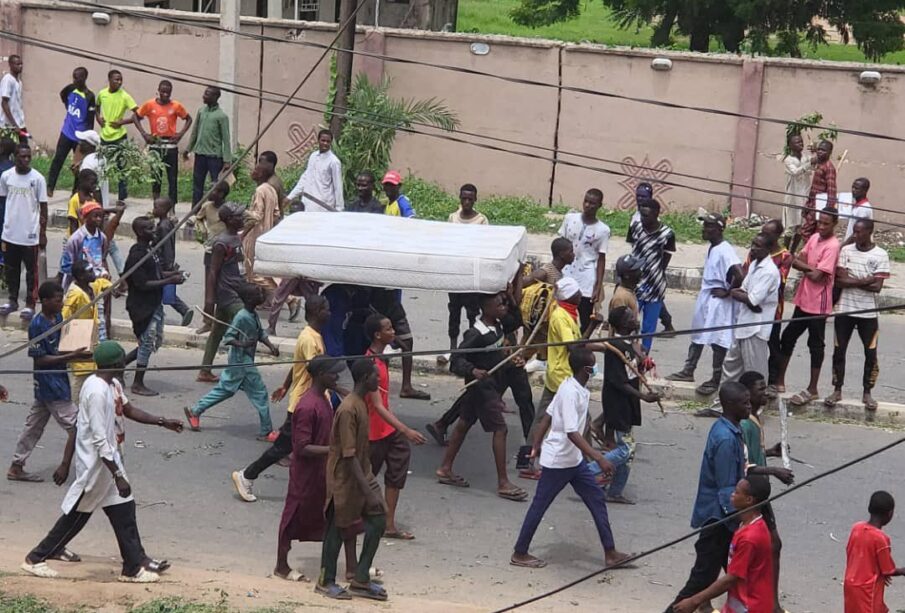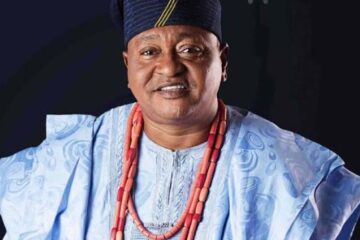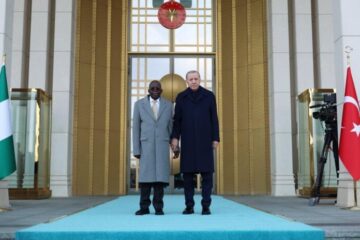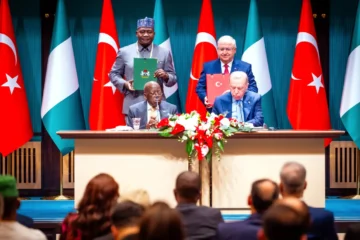
No fewer than 14 protesters, including a policeman, yesterday lost their lives on the first day of the protest against hardship in the country.
Those killed included six at Suleja in Niger State; four in Maiduguri, Borno State; three in Kaduna State; and one in Kebbi State.
Aside from those killed during the protest, a curfew was also declared in Borno and Kaduna states, as the protests, which started on a peaceful note, turned violent later.
Clashes between the police and protesters were equally recorded in Abuja, Delta and Bayelsa states but the protest was largely peaceful in Lagos, Oyo and Osun states.
At Suleja, where dozens of protesters also sustained injuries, victims were said to have been killed while security operatives were struggling to dislodge a group of protesters who mounted barricades on a section of Abuja-Kaduna highway, entrapping hundreds of passengers and motorists for hours.
Some policemen who were around the barricade, could not control the youths who outnumbered them.
However, a reinforcement team was said to have been sent to the scene where pandemonium occurred.
Among those killed was said to be Yahaya Nda Isah, a resident of Hassan Dalatu Road, Suleja, who was hit by a stray bullet.
The bullet reportedly hit Isa on his bike in front of Suleja Police ‘A’ division where protesters had assembled.
A nephew of the deceased said his uncle was on his bike when the bullet fired to disperse protesters hit him on his chest and he died on the spot.
“He was my uncle, he was not even protesting. He was passing in front of the Police ‘A’ division where some people were protesting when a stray bullet hit him on his chest and he died. As I speak with you, I am in his house, alongside other mourners. It’s unfortunate,” he said.
Another victim, simply identified as Mallam Abu, also died on the spot, having been hit by stray bullets.
One of the residents, who did not want his name in print, said three other people were shot at the same scene, while two others were shot at the Suleja Junction on Abuja-Kaduna road but could not confirm if other victims were dead.
Another resident, who said his shop was not far from the Suleja Police “A” Division, said he closed his shop and ran for his life.
“We heard people shouting and gunshots were heard for about 20 minutes at Emir Roundabout. The situation in Suleja is ugly,” said Bala Abdullahi, another resident.
Protesters burnt down Tafa local government secretariat, Sabon Wuse, along Kaduna-Abuja expressway at about 9:30 am.
Besides setting the secretariat ablaze, two cars were also burnt down, while two others were vandalized and valuables looted in the secretariat.
The development, it was gathered, created a traffic logjam along the ever-busy expressway before a combination of security agencies mobilised to the area and dispersed the miscreants.
Police Public Relations Officer of the state, DSP Wasiu Abiodun, who confirmed the development, said eleven persons had already been arrested and that the highway was now free for traffic.
The PPRO said in a statement: “Some miscreants of Tafa area of Kagarko LGA of Kaduna State and that of Hayin-Diko Gurara LGA of Niger State mobilized and stormed Tafa LGA Secretariat of Niger State located along Abuja-Kaduna expressway, Sabon-Wuse Niger State.
“The hoodlums vandalized the secretariat, partly set it ablaze, two cars were also burnt and two other others vandalized.
“They further looted valuables there-in, while the police and other security agencies responded to the scene and arrested eleven violent miscreants with different dangerous weapons, including firearms as others were dispersed from the scene and some of the looted items recovered.’’
In Maiduguri, Borno State, four persons said to be staff of Kime filling station around Bolori junction of the metropolis, lost their lives to the protest.
At press time yesterday, the victims were still in the pool of their blood, even as video of the killings were viral on social media.
Already, Police authorities have imposed a 24-hour curfew on the state, citing violence that escalated in the nationwide protests and the bomb blast that took place in Kawuri village of Konduga Local Government Area of the state which left 20 people dead and 16 injured less than 24 hours before commencement of the protest.
Unconfirmed reports indicated that the victims/workers of the filling station died from stray bullets, while another version revealed that there was no sign of bullets/gunshots on the victims.
Speaking to one of the filling station attendants, Baba Musa, in a telephone interview, said: “It was an explosion that took place and killed four persons instantly, while I managed to escape unhurt.”
Chairman of Independent Markerters Association of Nigeria, IPMAN, Borno State branch, Alhaji Mohammed Kuluwu, confirmed the killing of four persons at Kime filling station in the afternoon, noting he had been been making contact with the Director of the affected station, but couldn’t get his phone line to ascertain details of what led to the killing of the victims.
But, some other witnesses insisted the victims were felled by stray bullets fired at protesters whose protest against hardship in the country had turned violent.
Protest turns violent in Kaduna, 3 feared killed, many injured, taken to hospitals
Similarly, the otherwise peaceful protest against bad governance in the country also turned violent in Kaduna, leaving no fewer than three youths dead and many other protesters injured.
An eyewitness said the number of protesters, mostly youths and the unemployed, which had outnumbered security operatives, marched from the Rigasa area and from the Abakwa end, towards the Sir Kashim Ibrahim House, the official residence and office of the state governor.
A surviving protester, who craved anonymity, said: “We were marching peacefully and no one was carrying any offensive weapon.
“I think the security operatives near Government House were threatened by our large number. Suddenly, a vehicle they use to spray hot water on protesters came speeding towards us from the Government House axis and sprayed us with hot water, then another security vehicle came on speed from the 44 Reference Hospital end.
“In the confusion that ensued and as we scampered to save ourselves from being hit by the security vehicles, three peaceful protesters were hit and they died. No one carried any weapon, we were just carrying placards and chanted slogans against bad governance.’’
Meanwhile, reports indicated that the office of the Kaduna State Traffic Agency, KASTLEA, was touched by the protesters.
Major streets in the state capital were deserted, while markets and shops were closed due to fears the protest might be hijacked by hoodlums.
Combat-ready policemen and other security operatives were stationed at potential flashpoints to forestall any eventuality.
Citizens, majority of who embarked on panic buying of foodstuffs and other essentials the previous day, had remained indoors and monitored happenings on local radio and television.
Schools and other vocational training institutions, also remained closed.
Spokesperson of the Kaduna State Police Command, ASP Mansir Hassan, accused members of the Islamic Movement in Nigeria, also known as Shi’ites, of turning the peaceful protest violent.
He said they attacked a Police Armoured Personnel Carrier and some of their operatives, warning that the police would not allow hoodlums break law and order in Kaduna State.
He also clarified that the number of personnel deployed for the protest in the state was 2,500 and not 25,000 earlier reported, saying the command has arrested 25 suspects involved in attacking state-owned agencies.
Meanwhile, a former lawmaker, Shehu Sani, called on protesters to shun violence and be law-abiding.
He said: “The images and clips of the looting in Kano are unfortunate and condemnable. All efforts must be put in place to secure people’s lives and properties.
“The protesters have the right to protest but they should not allow hoodlums and criminals to hijack the protest and start looting.
“I totally condemn the looting in Kano. And the security should live up to expectation by ensuring law and order.’’
In Kebbi, a businessman lost his life in the protest in Yauri local government area, having been hit in his shop where he sold plastics.
An eyewitness, Malam Umar Yelwa, who confirmed the incident, said the protest became violent when protesters blocked the federal highway to traffic coming into Yauri town.
He said while marine police engaged the protesters to disperse them, they allegedly fired bullets at the protesters, one of which killed the innocent plastic dealer in his shop.
However, efforts to get the reaction of the police in the state at press time were unsuccessful as the police image maker, SP Nafiu Abubakar, didn’t answer calls made to his line.
He also didn’t reply text messages sent to his mobile phone.
The situation in the state capital, Birnin Kebbi, remained calm after the protracted protest in some parts of the state.
To prevent the protest from turning violent, Yobe State government yesterday imposed a 24-hour curfew on Potiskum, Gashua and Nguru areas of the state after some hoodlums reportedly cashed in on the harship protest to loot government property.
Special Adviser to the Governor on Security matters, Brig. Gen Dahiru Abdussallam, retd, in a statement yesterday, said the curfew would be fully enforced.
“Yobe State Government has considered the security situation in Potiskum, Gashua, and Nguru towns where some hoodlums are taking advantage of the protest to vandalize and loot government and private properties.
“In view of the above, therefore, the state government has imposed a 24-hour curfew on Potiskum, Gashua and Nguru. The public is hereby advised to abide by the curfew and stay at home for peace to reign in these areas and the state at large.
“Security agencies have been directed to ensure enforcement and full compliance of the curfew,” the statement read.
In Kano, the situation turned violent as protesters embarked on a looting spree, which compelled Governor Abba Yusuf to declare a 24-hour curfew with immediate effect.
The governor, who announced the curfew while addressing newsmen at Government House, said the action became imperative to ensure full protection of lives and property in the state as hoodlums and thugs hijacked the process.
He said the decision was taken after an emergency state security council meeting and directed all security agencies to ensure full and immediate compliance.
The governor said: “It is with a heavy heart that I address you today regarding the unfortunate events that transpired during the recent peaceful protest.
“You may recall that on July 31, 2024 we organized a town hall meeting with stakeholders, religious leaders, leaders of business community, traditional leaders, academia, technocrats, youth and women’s groups and civil society organizations.
“During the meeting, I acknowledged that the protest is a constitutional right. However, I urged the protesters to conduct themselves in a peaceful and orderly manner and I expressed my intention to receive their complaint and assured them that their grievances would be forwarded to Mr. President and Commander-in-Chief for possible attention.
“Our goal was to facilitate a constructive dialogue and address the issues raised by our fellow citizens. Similarly, this morning (yesterday), we received the representatives of the peaceful protesters where they submitted their demand in writing which I promised to deliver to Mr. President.
“While I commend the vast majority of peaceful protesters who stated their concerns responsibly, it is however, regrettable to say that the whole protest that was meant to be a demonstration of democratic right to voice our concerns was hijacked by thugs and hoodlums who embarked on looting of business premises, government properties and maiming of innocent citizens.
“Such miscreants have become persistent in wanton destruction of private and public properties aided by enemies of the state who have been reported to the security agencies a few days back.
“After exhaustive deliberations during emergency state security council meeting, it was collectively decided that 24-hour curfew should be put in place to prevent further looting and vandalism of shops, including indiscriminate killing and maiming of innocent citizens.’’
Angry protesters had set ablaze tyres in front of Government House to express their displeasure over bad governance.
The protesters also pelted security agents stationed in the area with stones, and it took the interventions of security agencies who shot tear gas into the air to disperse the angry protesters.
The hoodlums, wielding dangerous weapons, hijacked and took advantage of the protest to loot facilities and properties, such as Nigerian Communication Commission, NCC, office located in Audu Bako Secretariat, Kano Printing Press, shops, banks and street lights and foods, among others.
Not fewer than 11 journalists covering the protest narrowly escaped attack by the hoodlums who hijacked the protest in the state.
Meanwhile, unconfirmed reports have it that two persons were feared killed, with several others sustaining injuries during the protest.
Although the governor confirmed that there were indiscriminate killing and mayhem on innocent citizens, he did not, however, give the number of those killed, while the Kano State police command was, at press time, yet to officially confirm the number of casualties and arrest made in the state.
Military takes over Abuja-Kubwa highway as protesters turned violent, extort motorists, others
In Abuja, the military was forced by violent protesters to take over the popular AYA-Kubwa highway, which provides access to the biggest housing estate in Africa, Gwarimpa, and leads to other parts of Northern Nigeria.
Although the protesters started their demonstration peacefully in the morning, they later became violent and exploitative as the protest gathered momentum later in the day.
The unruly protesters, made up mostly of street urchins and criminals, started by blocking the road and molesting motorists on service lanes of the ten-lane highway, and subsequently extended their heinous trade to the centre of the road, blocking it and making bonfires, to stop motorists and extort money from them.
They also brazenly ignored the presence of policemen and civil defence operatives, attacking motorists and passers-by who did not pay them what they requested.
As the hoodlums blocked the highway and extorted motorists, they also beat up those who refused to part with cash.
The information immediately spread to the military authorities, which immediately dispatched troops and armoured trucks to take over the highway.
As the military forces arrived, they cut off the highway at Katampe roundabout with an armoured truck to check incoming and outgoing movements.
The military placed similar armoured trucks and personnel at different and strategic locations to push the mob away.
But the troops could not immediately clear the road of the huge stones, tree trunks and burnt tyres as well as other impediments which the hoodlums erected to stall free movement before the military arrived.
The protesters, led by the convener of the Take it Back Movement, Deji Adeyanju, had earlier stormed the Moshood Abiola Stadium which the court order secured by the federal government less than 24 hours to the protest restricted, wielding placards with varied inscriptions.
Soon after they got to the stadium, pro-government protesters, conveyed in at least 12 Toyota Coaster buses arrived in the area, this set off a confrontation not only between the pro and anti-hunger protesters but also with the police.
The protesters soon moved into the streets, with the police firing teargas at them, thus setting off a clash that made the protest violent.
Vanguard











